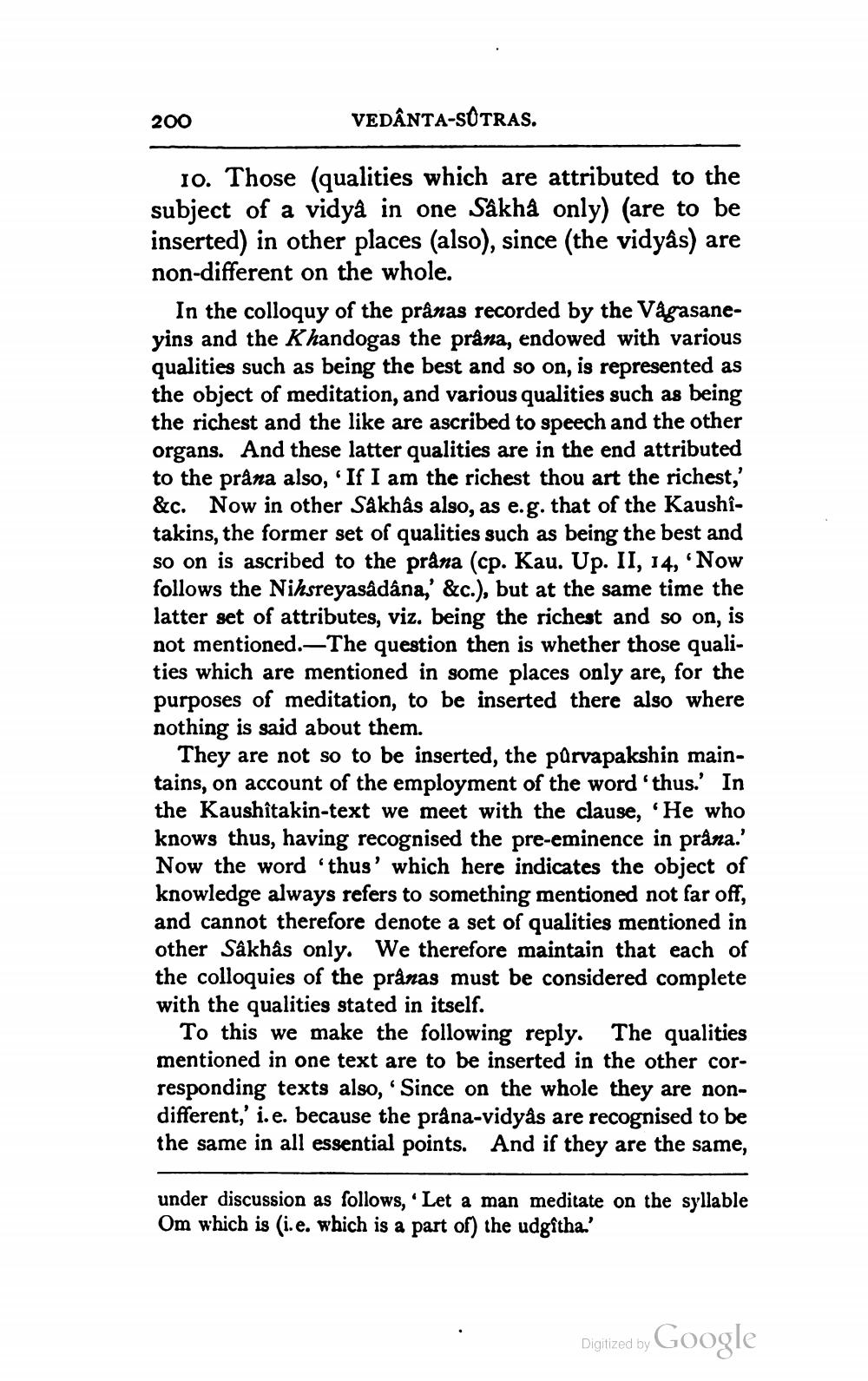________________
200
VEDÂNTA-SOTRAS.
10. Those (qualities which are attributed to the subject of a vidya in one Sâkhå only) (are to be inserted) in other places (also), since (the vidyâs) are non-different on the whole.
In the colloquy of the prânas recorded by the Vågasaneyins and the Khandogas the prâna, endowed with various qualities such as being the best and so on, is represented as the object of meditation, and various qualities such as being the richest and the like are ascribed to speech and the other organs. And these latter qualities are in the end attributed to the prâna also, 'If I am the richest thou art the richest,' &c. Now in other Såkhâs also, as e.g. that of the Kaushîtakins, the former set of qualities such as being the best and so on is ascribed to the prâna (cp. Kau. Up. II, 14, 'Now follows the Nihsreyasådana,' &c.), but at the same time the latter set of attributes, viz. being the richest and so on, is not mentioned.-The question then is whether those qualities which are mentioned in some places only are, for the purposes of meditation, to be inserted there also where nothing is said about them.
They are not so to be inserted, the purvapakshin maintains, on account of the employment of the word 'thus.' In the Kaushîtakin-text we meet with the clause, 'He who knows thus, having recognised the pre-eminence in prâna.' Now the word 'thus' which here indicates the object of knowledge always refers to something mentioned not far off, and cannot therefore denote a set of qualities mentioned in other Sakhâs only. We therefore maintain that each of the colloquies of the pranas must be considered complete with the qualities stated in itself.
To this we make the following reply. The qualities mentioned in one text are to be inserted in the other corresponding texts also, 'Since on the whole they are nondifferent,' i.e. because the prâna-vidyas are recognised to be the same in all essential points. And if they are the same,
under discussion as follows, Let a man meditate on the syllable Om which is (i.e. which is a part of) the udgîtha.'
Digitized by
Digized by Google




